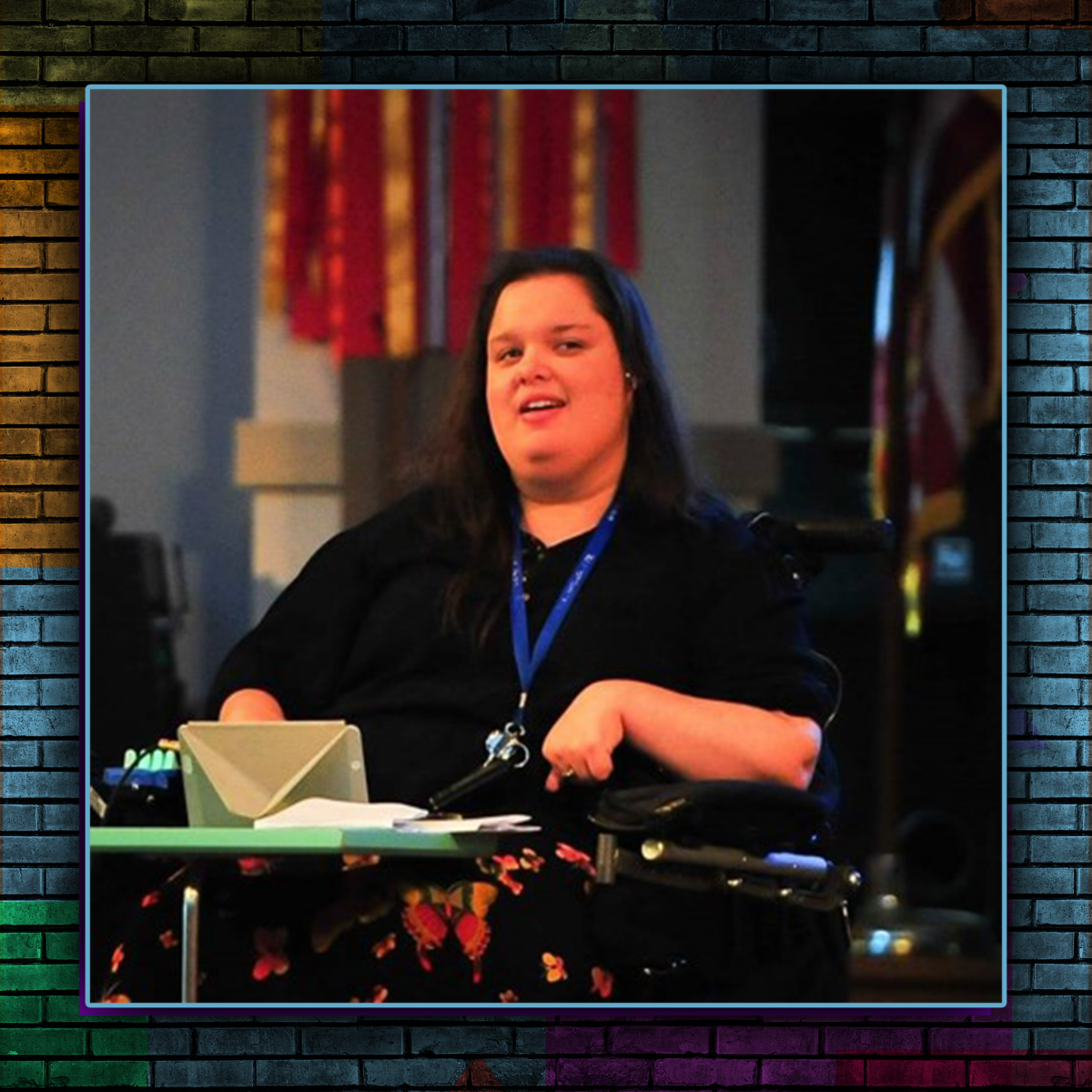John 12:1-8, NRSV
An Autistic Perspective on the Anointing at Bethany
Six days before the Passover Jesus came to Bethany, the home of Lazarus, whom he had raised from the dead. There they gave a dinner for him. Martha served, and Lazarus was one of those at the table with him. Mary took a pound of costly perfume made of pure nard, anointed Jesus’ feet, and wiped them with her hair. The house was filled with the fragrance of the perfume. But Judas Iscariot, one of his disciples (the one who was about to betray him), said, “Why was this perfume not sold for three hundred denarii and the money given to the poor?” (He said this not because he cared about the poor, but because he was a thief; he kept the common purse and used to steal what was put into it.) Jesus said, “Leave her alone. She bought it so that she might keep it for the day of my burial. You always have the poor with you, but you do not always have me.” When the great crowd of the Jews learned that he was there, they came not only because of Jesus but also to see Lazarus, whom he had raised from the dead. So the chief priests planned to put Lazarus to death as well, since it was on account of him that many of the Jews were deserting and were believing in Jesus.
I spent a lot of time alone at recess. Most of my classmates liked to play soccer, but I got overwhelmed with that game quickly because I didn’t understand the rules, where the ball was, or where my body was in relation to the other players. Instead of joining my friends I ran towards the trees where I could find wildflowers along the way. Dandelions were my favorite, even after learning they were technically weeds. Though each individual flower didn’t have a strong aroma, I would get a few in my hands and felt as if I could smell the flowers forever if I just breathed deeply enough.
Besides not being able to keep up with soccer games, I definitely never felt “normal” compared to the rest of my peers, even if they were my friends. I behaved in ways that others perceived as strange, such as chewing my hair, rocking back and forth when in distress, and crying at what seemed like the drop of a hat. I never really understood these behaviors; I knew they were different, but I didn’t know how to stop them or why I exhibited them in the first place. They frequently disrupted my learning and my social interactions, and I didn’t know why I was so different when I just wanted to be the same. I liked picking flowers, but I just wanted to play soccer like everyone else.
I did not yet know that there was a word that explained my differences: autism. I was diagnosed at age three and a half but was ten before I had any awareness of the word. Learning about my diagnosis made my differences make sense, and I finally accepted my preference for picking flowers over picking sports teams. In the twenty-three years since my diagnosis, autism has become more widely understood beyond the early stereotype that autism was “an extreme male brain” that only affected boys who wouldn’t walk away from their Lego sets to socialize with other children. However, there is still one pervasive stereotype of autism that deeply frustrates me: that autistic people lack empathy.
Many autistic individuals, including myself, do exhibit below-average levels of cognitive empathy, which helps one understand how to anticipate another person’s reactions, understand social cues to continue or end conversations, or pick up on sarcasm or nuance. (Even so, below-average does not mean nonexistent.) I am known for my sarcastic remarks. Somatic empathy, on the other hand, is a form of empathy that autistic individuals often experience at above-average levels. Taken from the Greek root soma, translated as “the body,” somatic empathy is a physical reaction to the emotions and experiences of another.
The heightened somatic empathy associated with autism is both a blessing and a curse. While I have long since given up on soccer and no longer chew my hair, I still get overwhelmed with (and feel physical pain from) different sensory experiences that others might tolerate without a second thought—like fluorescent lights or overlapping conversations in a crowded supermarket. However, it is this heightened somatic empathy that allows me to experience unadulterated joy at the tiniest moments—like my cats curling up next to me on the couch or the warmth of a blanket fresh out of the dryer. Empathy exists far beyond clinical definitions and popular stereotypes.
Today’s passage demonstrates the boundlessness of empathy. The dinner itself could not have existed without Martha’s service. Her attentiveness to the guests’ needs demonstrates deep cognitive empathy necessary to set the tone for dinner with someone as important as Jesus of Nazareth. This is the type of empathy that would have allowed me to see where the soccer ball was passed and how to play my part in creating an exciting game with my classmates. I don’t want to discount Martha’s role in this event. In contrast, Mary’s actions did not follow any cognitive norms, but Mary is no less empathetic or important than Martha. It surely wasn’t “normal” to anoint a guest’s feet with perfume costing the same amount of money that a laborer would earn in a year, but Mary kept it for the day of Jesus’s burial. By opening the jar of perfume and anointing Jesus’s feet, Mary prophesied to Jesus’s impending burial in just a few days. Though the perfume had a monetary worth, its value in this moment was immeasurable.
Likewise, Mary’s prophetic action demonstrated a profound emotional bond with Jesus that could only be nurtured with shared somatic empathy. In the preceding chapter, both Mary and Martha wept for their brother, Lazarus, who had died four days prior to Jesus’s arrival in Bethany. After seeing Mary’s tears, Jesus himself—God-in-flesh—began to weep too. Jesus knew all along that he would raise Lazarus from the dead, and had even told Martha that all who believe in Him would have eternal life (John 11:26), but the sight of death—and of Mary’s tears— still made him weep.
When the dinner began, the fragrance of nard filled the entire room—overwhelming the senses and creating an atmosphere of sweetness, reverence, and prophecy. It is Mary’s somatic empathy and physical response to Jesus’s presence that created this experience and set it apart from ordinary dinners. Likewise, just as Mary had moved Jesus to tears before he raised Lazarus from the tomb, the anointing of Jesus’s feet might have moved Jesus to wash his disciples’ feet at the Last Supper, of which he was the host (and the Host). I wonder how many flowers it took to make that much perfume.
The first time I participated in a foot washing on Maundy Thursday, just a few days after hearing this passage for the first time, I was moved to tears of joy and wonder. While I was not the only one crying, my reaction confused me. Afterall, I recoiled at touching another person’s feet or having my feet touched in any other context. I knew that foot-washing was usually reserved for the lowliest servant of the household because feet were even more gross back then because people didn’t wear shoes. Even so, Jesus was eager to wash his disciples’ feet as an act of love. So too did Mary humble herself before Jesus of Nazareth, the lavish display of reverence also serving as a prophetic act—one that may have inspired the very foot washing I had just experienced.
While autistic people are not alone in experiencing somatic empathy, our negative experiences with it—like with fluorescent lights and overlapping conversations—often outweigh our joys. While both of those things are still physically painful for me, the joy and purpose I find in life and in my faith is just as meaningful as anybody else’s. Both Mary and Martha were indispensable to setting the prophetic scene, and Mary’s actions are proof that prophecy does not require words. Neither does the continued witness of autistic people, even when we’re off by ourselves picking flowers.

Shelby Lewis, MDiv, graduated from Vanderbilt Divinity School in December 2020, and is pursuing ordination in the Tennessee Region of the Christian Church (Disciples of Christ). She is the mother of two rescue cats, Lucius and Violet, as well as several plants at varying levels of survival.
She completed her B.A. in Religious Studies at Elon University, where she was a member of Phi Beta Kappa and Theta Alpha Kappa Honor Societies, as well as the recipient of Elon LGBTQIA Alumni Association’s Student of the Year Award in 2015. As a queer, autistic woman in ministry, she hopes to develop resources to help churches become more equitable for people with disabilities in the pulpit and the pews.
Her favorite pastimes include taking Lucius for walks around the neighborhood, binge-watching The Golden Girls, and coming up with creative ways to socially distance.



Unbound Social